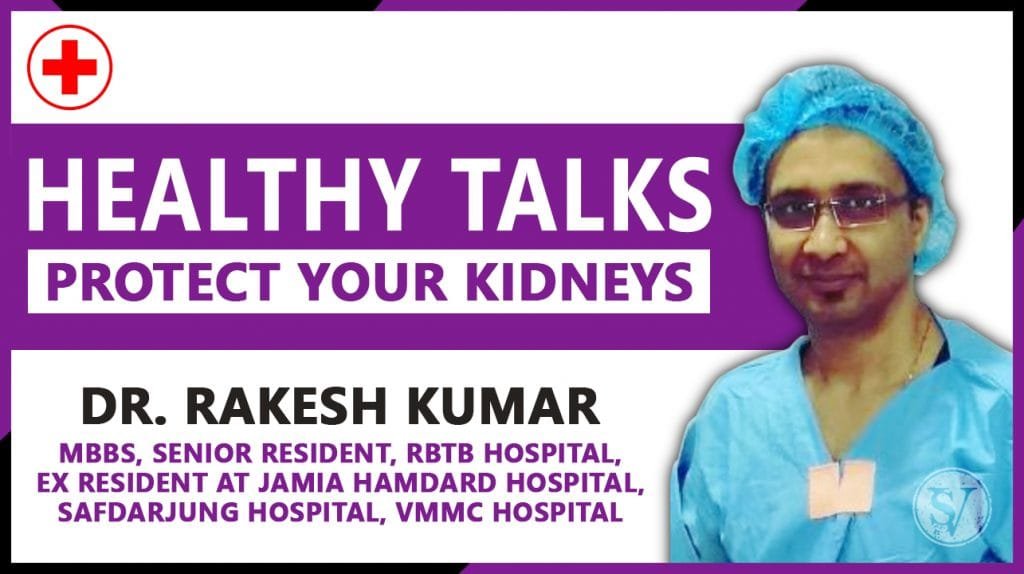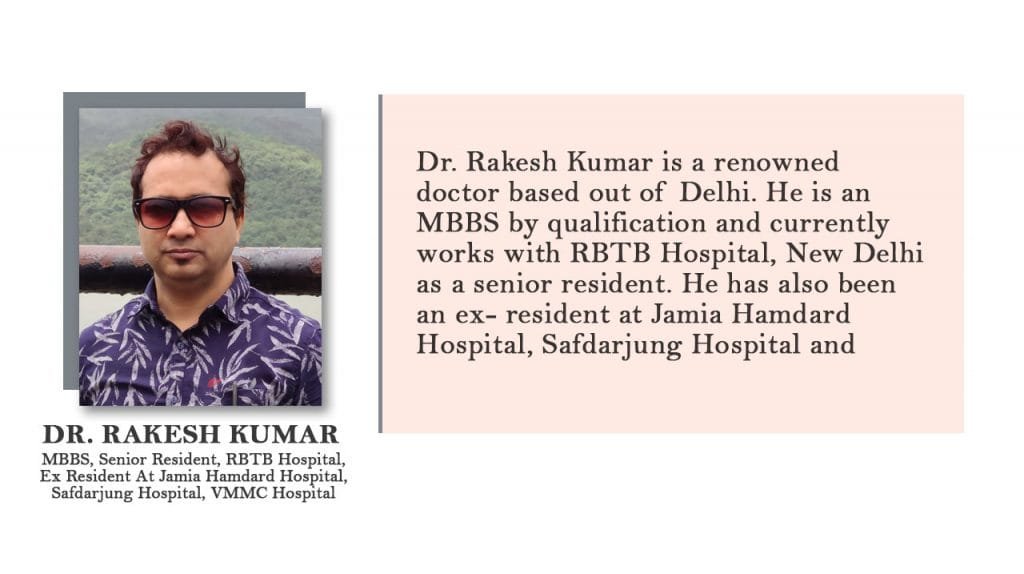Depression is ranked as the single largest contributor to global disability. Prevention programmes have been shown to reduce depression. Effective community approaches to prevent depression include school-based programmes to enhance a pattern of positive thinking in children and adolescents.

We spoke to Dr Rakesh Kumar, Resident, RBTB Hospital on the issue of depression. Here are the excerpts of the interview –
Question -1: What is depression? How feeling of sad or low mood can be differentiated from depression?
Answer – Well, depression is very common these days. You must have heard a lot of people around saying things like – I don’t know what is going on, I am feeling exhausted and sad all the time. I have been waking up since the middle of night and I cannot fall back asleep. It has started interfering with my daily routine activities. I have no appetite left and I feel worthless. I cannot concentrate anywhere either I am just thinking or I am quitting. This may be early signs of depression.
So, what is depression? Depression is also known as Major Depressive Disorder or MTT. It is a common and serious medical illness, that impacts on person’s thinking, feeling and behaviour, they can have an impact on daily activities like eating, sleeping, and working. Remember, depression affects three domains around which whole depression revolves around which are emotions, that is sadness, the way we think that is cognition, and thirdly, how do you behave when we have sadness.
Symptoms like the constant sadness or weight loss or weight gain, inability to sleep or oversleep, severe fatigue, feeling worthless or guilt, loss of interest in the pleasurable activities which we once enjoyed and thoughts of death or suicide.
All over the world, 300 million people suffer from depression. Unfortunately, depression not only affects the person, but the whole family and even affects the whole society. Depression is worse in the course of the treatment of other chronic illnesses. A depressed patient refuses to take medications they may not be active they may have a sedentary lifestyle, may start smoking or start using drugs or alcohol to overcome the depression and this causes a huge amount of morbidity and mortality.
One of the very important aspects is how can we differentiate sadness from depression See, sadness and happiness fluctuations are present in our day-to-day life. Sadness is a common emotion felt by everyone. Mere feeling of sadness or loneliness does not mean, it is depression. It becomes depression only when it becomes more pronounced in terms of duration which should at least present for two weeks pervasiveness that is the continuation of the significant signs and symptoms. This is a treatable medical condition just like asthma or diabetes.
Question 2. There is a lot of stigma attached to depression. People often hesitate to seek professional help. How can we overcome that?
Answer – It is not a weakness or personality trait should will vanish on its own. Just like if a person has a broken hand, we need to treat it and make it work again. We can’t expect that hand will be healed on its own. I suggest that an open conversation about mental illness should help erode stigma and make it easier for people to ask for help. So, let’s talk about depression at every level, from patient to society level, because society has also an important role in terms of making help out and not making them feel guilty.
Question 3. What are the causes and risk factors related to depression?
Answer – See, our thoughts, feeling, and behaviour are influenced by complex series of chemicals that is neurotransmitters in our brain. So, depression occurs because of various chemical imbalances in our bodies. Like in diabetes, insulin deficiency or imbalance occurs in our body. Likewise, in depression, neurotransmitters like serotonin, nor epinephrine, and dopamine become less. So, depression is not a matter of choice, not a matter of individual fault. It is not a matter of only circumstances. We can understand that by means of the bio psychological model, what is it? Bio means genetics and neurotransmitters. Psychological means personality, how we interfere with problems in life and social means environmental factors. So, both the cause and treatment of depression are interrelated. Let’s come over genetics, genetics is one of the most common causes, if the parents have depression, that is, there is an increased risk of depression.
Question – 4. Once someone is diagnosed with depression, what are the different modalities of treatment that they should go for to fight it out?
Answer – As I earlier told depression, like other illnesses is treatable. So, what are the different modalities of treatment? One is nonpharmacological treatment in which physical activity plays an important role. Other is diet means adopting healthy habits taking fruits and vegetables and psychotherapy in which cognitive behavioural therapy and interpersonal therapy are important. This psychotherapy depends heavily on the therapist’s mental health, health professional, or doctor second modality of treatment is pharmacological therapy. That is medications. There are several medications available for depression. The third is electroconvulsive therapy in severe cases ECT that is electroconvulsive therapy may be used. Apart from that, other newer modalities of treatment are also available. So my advice for patients and society is to keep a regular appointment with your doctor or other mental health professionals.
Question – 5. What is your advice to patients and society?
Answer – If you are diagnosed with depression, try not to isolate yourself. Spend time with others and confine the person you can trust. Be active. Exercise can boost your mood, and sleep quality also helps a lot. Involve your friends in fun activities. They can help you stay active. Ask your doctor where you can find information and educate yourself about depression. Have realistic goals. Spend time with family and friends. Postpone any big decision during depressive episodes. Even just openly talking about depression can help save a lot of lives.


